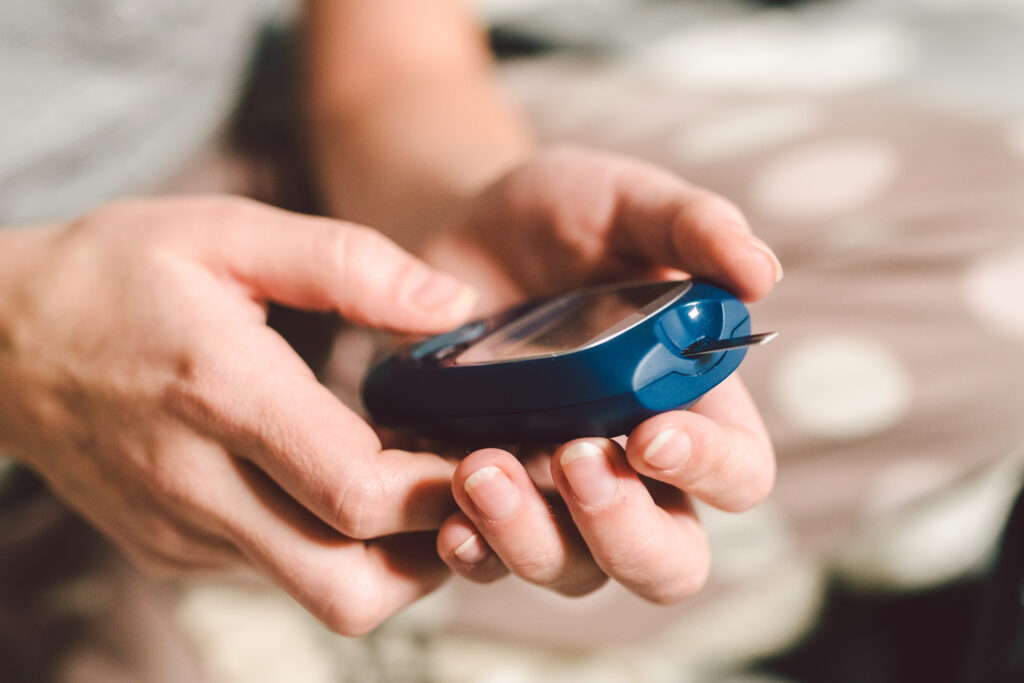
Genetics, weight gain, and diet are often associated with the risk for diabetes. But, according to new studies, the lack of sleep can also increase the risk of developing diabetes.1
According to Dalia Lorenzo, MD, a neurologist with Baptist Health’s Miami Neuroscience Institute, “There is impairment in the way the body is able to produce and use insulin when people are subject to prolonged sleep deprivation or poor-quality sleep.”1
Compounding the problem is that there are also reverse effects—people with diabetes tend to have worse sleep than people without diabetes.1
Dr Lorenzo says, “Patients with diabetes can have higher rates of nerve damage in the legs called peripheral neuropathy, which will cause pain in the feet and legs that can make it difficult to get good quality and good amounts of sleep.”1
REM sleep, sleep apnea, and hormones
Sleep consists of 2 distinct components: rapid eye movement (REM) sleep and non-REM (NREM) sleep.2 REM sleep accounts for approximately 18% to 22% of total sleep time, with the percentage of REM sleep decreasing slightly with age in adults.3
NREM sleep is arbitrarily divided into 4 stages, with stage 1 considered “light sleep” and stages 3 and 4 considered “deep sleep.”4 Together, NREM sleep stages 3 and 4 are often known as slow wave sleep.
Dr Lorenzo says sleep apnea is a particular problem. Why? “First, it interrupts the continuity of the sleep stages that a person needs to go through in order to get restorative sleep.” She goes on to say that there is an architecture to efficient sleep and that people need to go through progressively deeper stages of sleep and periodic REM periods throughout the night for sleep to be refreshing.1
“When a person snores loudly or is constantly obstructing their breathing, the sleep architecture is interrupted repetitively and the sleep is not refreshing,” Dr Lorenzo says. “There can be a curtailment of slow wave sleep, and this in particular has effects on hormone balance.” Breathing obstructions can cause decreases in the level of oxygen that is in the blood and the level of oxygen that makes it to the brain. Dr Lorenzo says that in some patients with sleep apnea, this can happen 30 to 70 times per hour.1
“This degree of oxygen deprivation, night after night, is expected to damage cells. Not only the cells in the brain, but also cells in the pancreas that are important in secreting insulin,” Dr Lorenzo says.1
New study finds new answers
A large-scale study on this topic, “Effect of Interaction Between Slow Wave Sleep and Obstructive Sleep Apnea on Insulin Resistance,” was recently conducted. Using results obtained from nearly 7000 patients, the study discovered that obstructive sleep apnea, combined with an extreme lack of slow wave sleep, has a more harmful effect on insulin resistance than obstructive sleep apnea itself. The study authors saidshort wave sleepand obstructive sleep apnea interact to increase the odds of developing insulin resistance. Compared to primary snoring subjects, the authors wrote, obstructive sleep apnea is independently associated with insulin resistance, after adjusting for potential compounding factors.5
“It is known that deprivation of slow wave sleep causes changes in the way hormone regulation occurs that favor insulin resistance, which is a prediabetic state,” Dr Lorenzo added. Further, she says, “This effect is magnified in patients that have obstructive sleep apnea.”1
Little sleep, bigger problems
Dr Brian Gotkin is a pulmonologist with Memorial Healthcare in Hollywood, Florida. His practice focuses on diagnosing sleep disorders such as sleep apnea and narcolepsy.1
Dr Gotkin says that if people are unable to lower their glucose levels, it can exacerbate problems with glucose regulation and contribute to type 2 diabetes. “Physically,” he says, “lack of sleep can lead to problems with diabetes, obesity, and cardiovascular disease.”1
Dr Alexander Abreau, a pulmonologist and sleep medicine specialist with the University of Miami Medical School, says “sleep deprivation may cause cognitive impairment, impaired immune system, daytime fatigue, and it increases the risk of developing diabetes mellitus type 2.”1
Testing for sleep apnea
The multitude of problems that can result from sleep apnea underscores the need for careful screening in physicians’ offices and testing when sleep apnea or other sleep-disordered breathing is suspected. According to the Mayo Clinic, an evaluation often involves overnight monitoring at a sleep center of a patient’s breathing and other body functions during sleep. Home sleep apnea testing also might be an option.6 Tests to detect sleep apnea include
-Nocturnal polysomnography
-Home sleep apnea tests
Next steps
Further studies are needed to elucidate the pathophysiological mechanisms underlying this relationship and to test the hypothesis that short wave sleep enhancement may ameliorate the risk for insulin resistance, according to the authors of the study cited.
REFERENCES
1.
Roth T. Slow wave sleep: does it matter? J Clin Sleep Med. 2009;5(2 suppl):S4-S5. https://www.ncbi.nlm.nih.gov/pmc/articles/PMC2824210/
2.
Ohayon MM, Carskadon MA, Guilleminault C, Vitiello MV. Meta-analysis of quantitative sleep parameters from childhood to old age in healthy individuals: developing normative sleep values across the human lifespan. Sleep. 2004;27(7):1255-1273. doi: 10.1093/sleep/27.7.1255
3.
Kales A, Rechtschaffen A. A Manual of Standardized Terminology, Techniques and Scoring System for Sleep Stages of Human Subjects. National Institutes of Health; NIH publication 204. US Government Printing Office; 1968.
4.
Huang W, Liu Y, Wang X, et al. Effect of interaction between slow wave sleep and obstructive sleep apnea on insulin resistance: a large-scale study. Nat Sci Sleep. 2021;13:739-749. doi: 10.2147/NSS.S311130
5.
Mayo Clinic. Sleep apnea: diagnosis and treatment. July 28, 2020. https://www.mayoclinic.org/diseases-conditions/sleep-apnea/diagnosis-treatment/drc-20377636
